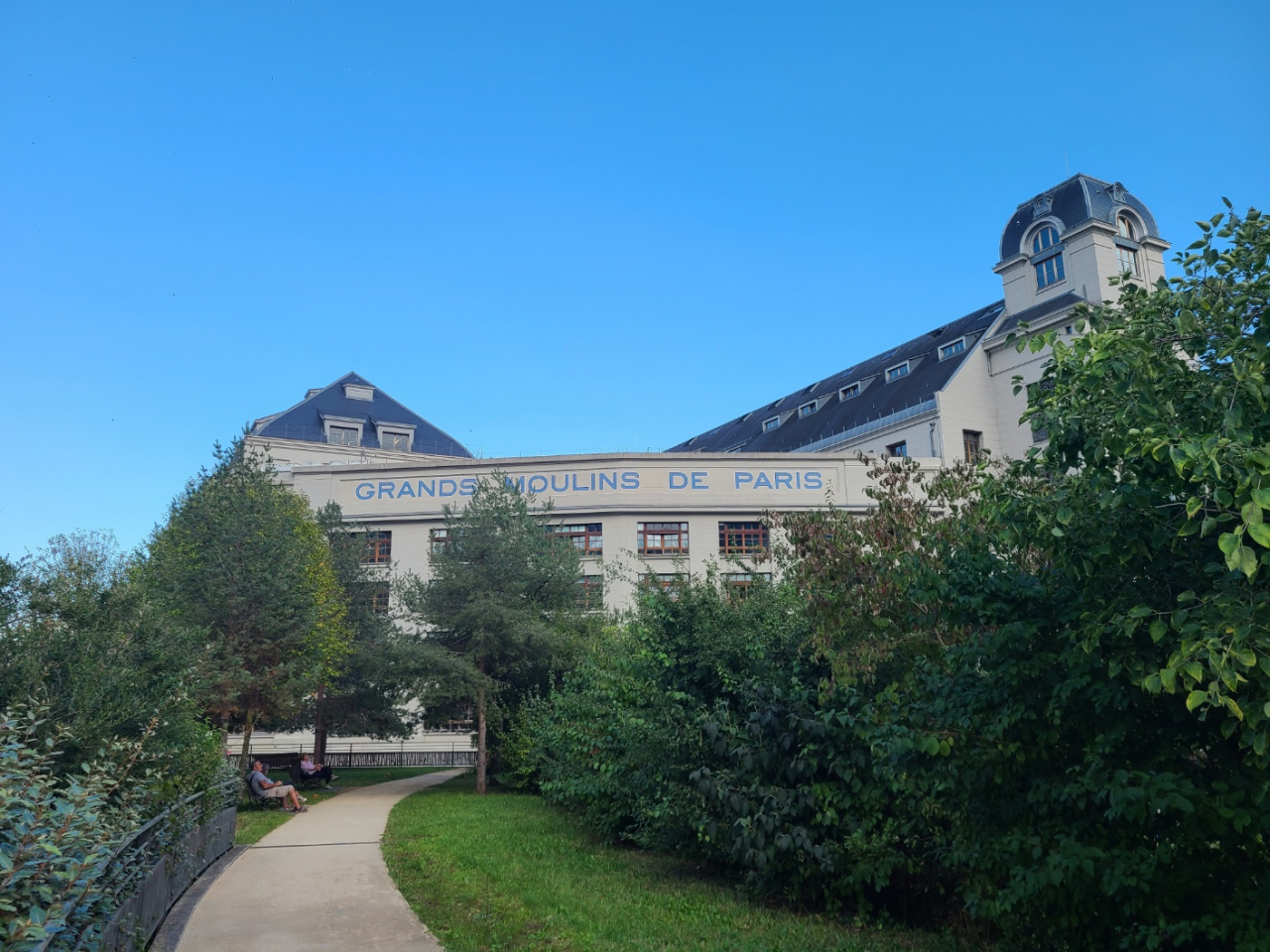
PARIS -- Professors speaking only Korean during lectures, notices on bulletin boards with the schedule of upcoming Korean language proficiency tests and celebrating the end of the academic term with rolls of gimbap.
This is daily life for students majoring in Korean studies in Paris.
The Korea Herald visited two universities in Paris reputed for offering credible and rounded Korean studies programs -- Paris Cite University and the National Institute for Oriental Languages and Civilizations, also known as Inalco. Students here pursue bachelor’s, master’s and doctoral degrees in Korean studies.
At the two universities located nearby each other, some 100 students, chosen from a pool of more than 2,000 applicants annually, spend years perfecting their knowledge of Korean history, language and arts.
They were among the earliest college institutions to offer Korean studies in Europe. But now, they have come to a critical point where systemic changes are needed for further growth, professors say.
Recent boom
The birth of Paris Cite University’s Korean studies course goes back to the 1970s. The program is one of the oldest in Europe and has since expanded in terms of the number of faculty and students, alongside the subjects it covers.
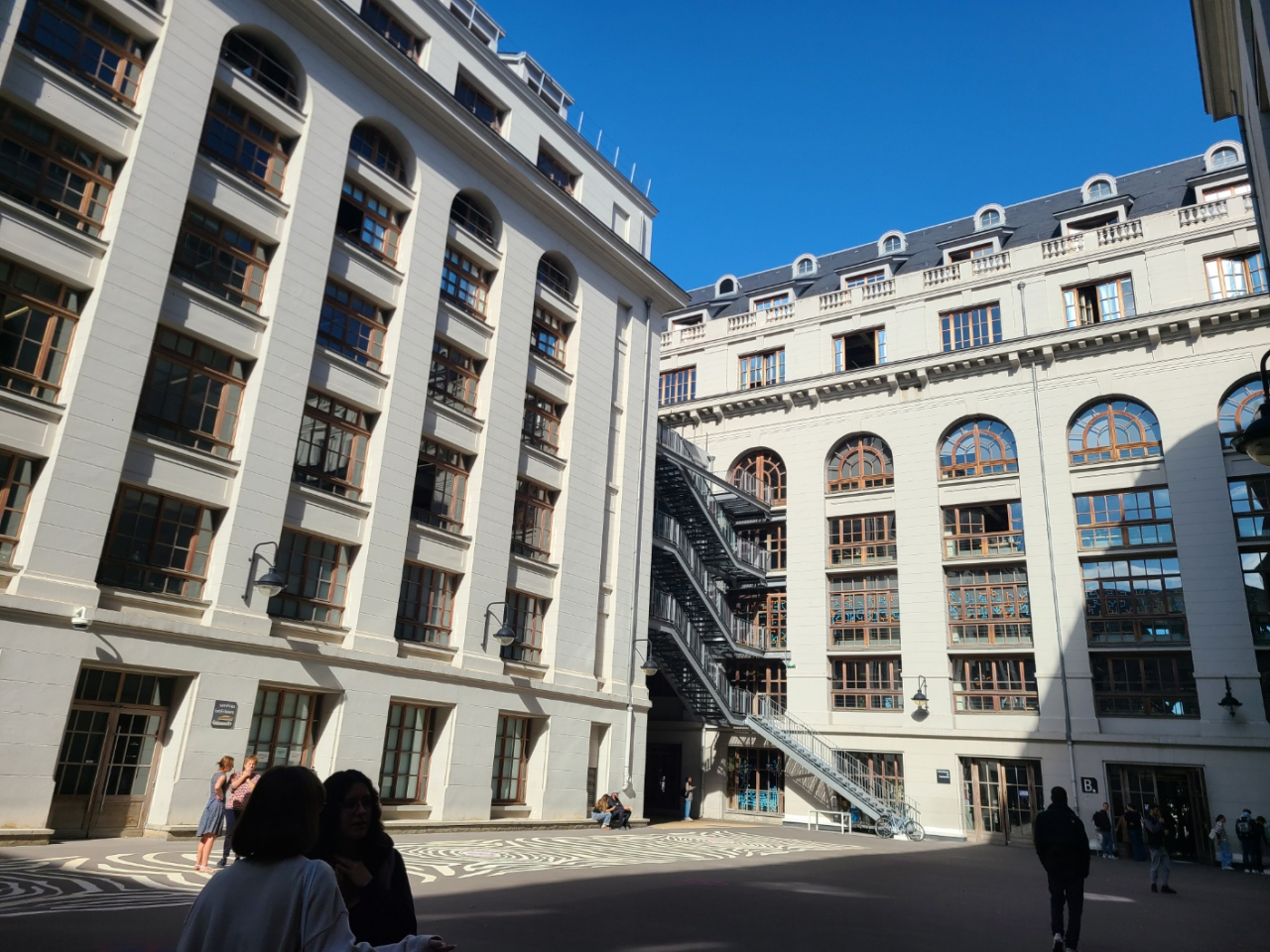
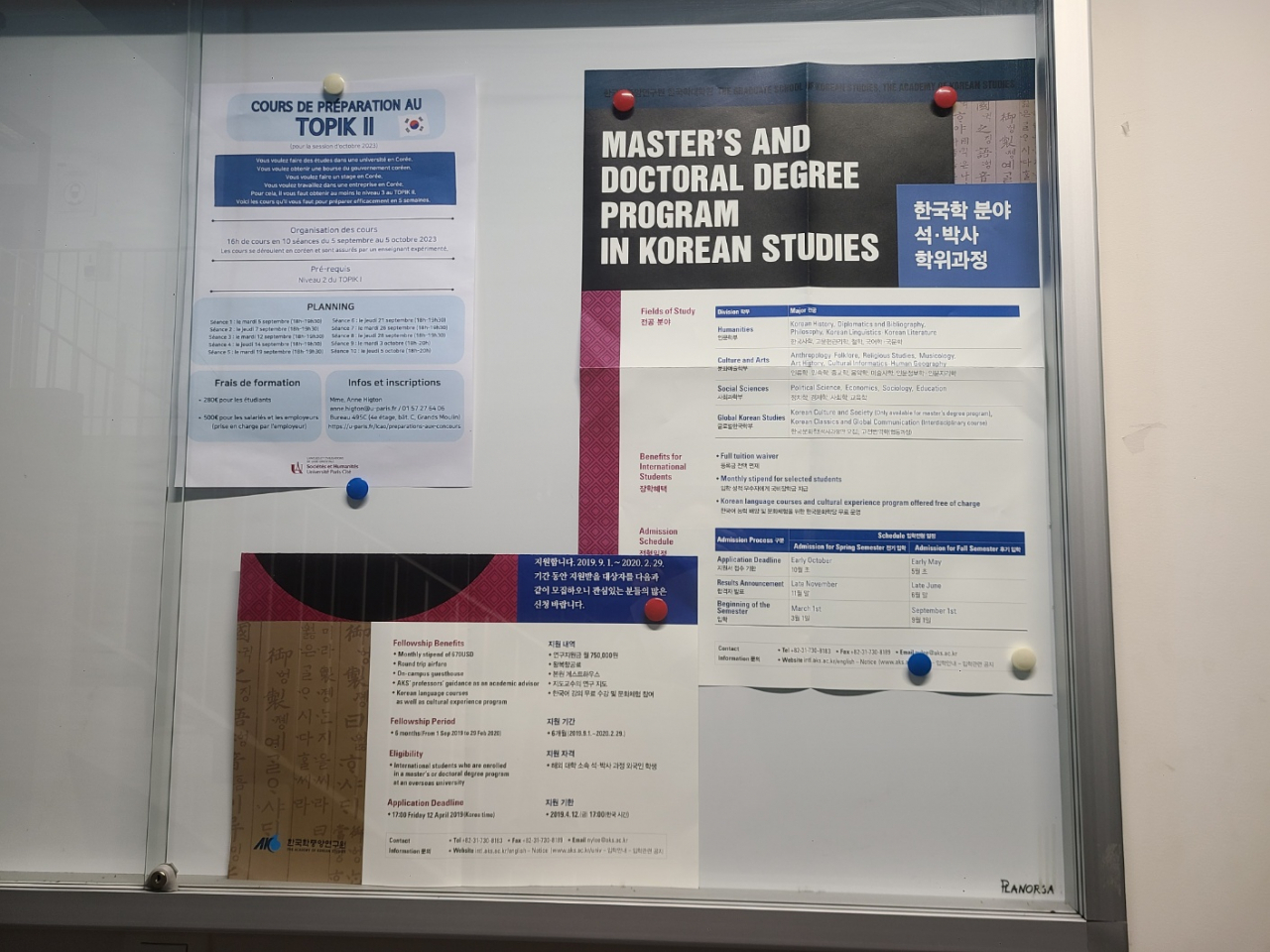
“Our Korean studies program started to gain popularity in the 2000s. It’s one of the most competitive programs to get in at our university,” Pierre-Emmanuel Roux, associate professor of East Asian history at Paris Cite University, said in an interview conducted in Korean.
Over the past few years, nearly 2,500 people applied to enter the department, but only 130 were accepted, the professor said.
Kim Jin-ok, a professor of Korean language at the same university, echoed Roux, pointing to the diversification of students since the late 2000s as a sign of growing popularity.
“I’ve been teaching here since 2005 and in the beginning, students who were Korean studies majors were almost always choosing it as their second major or had chosen it after they completed other East Asian studies,” Kim explained.
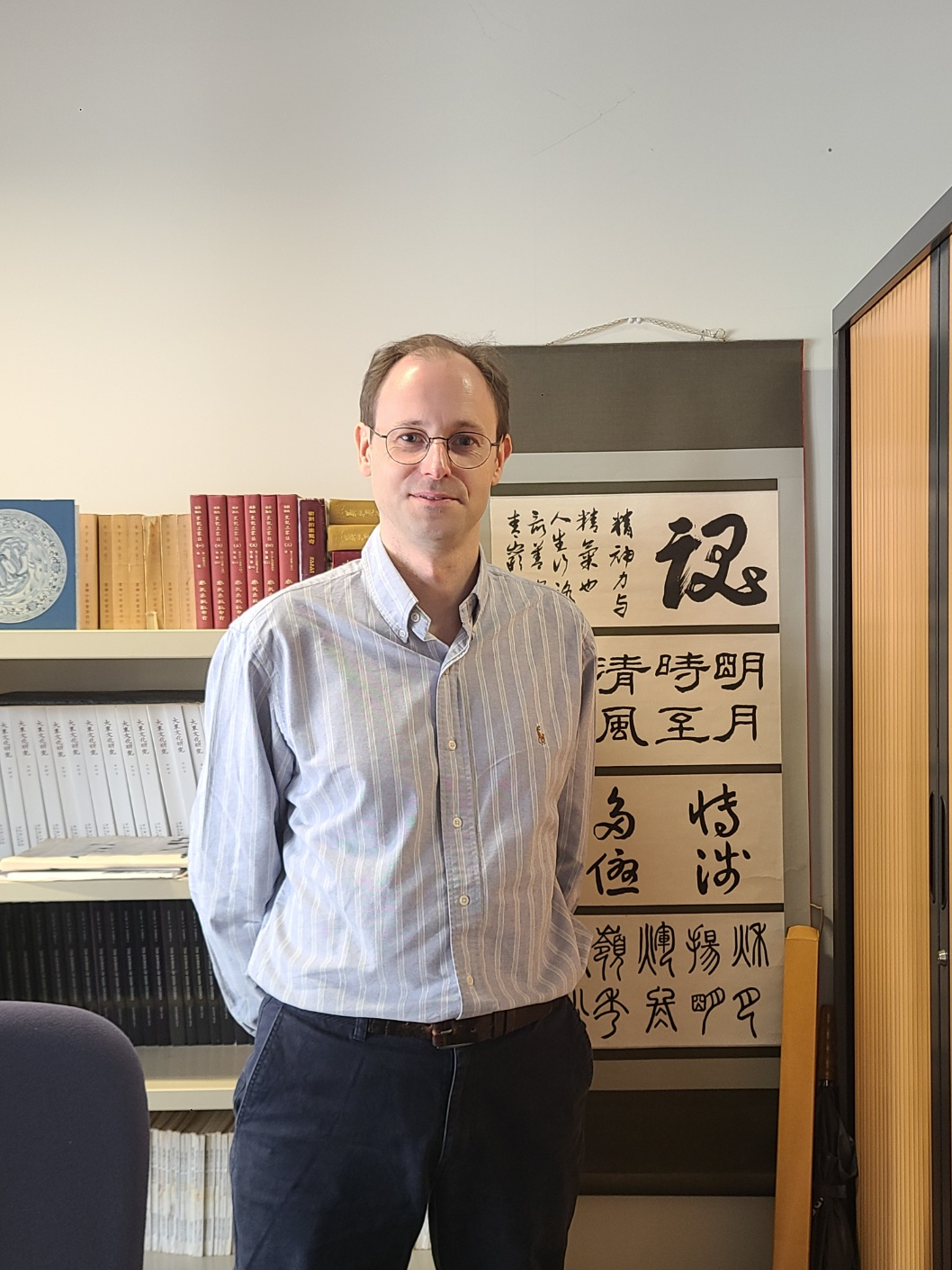
“The change began in the late 2000s: the genders of the Korean studies majors became more diverse and the age range became younger, meaning that more students were coming here fresh out of high school,” she said.
Unmet demand
Despite the growing popularity of Korean studies, the professors noted infrastructure that was either outdated or lacking in meeting increasing demand. Compared to Chinese studies and Japanese studies, it lags far behind in terms of the number of faculty, experts and overall resources, they explained.
“We have a total of nine full-time Korean studies professors in this school, compared to an average of 13 Chinese studies and Japanese studies professors per department,” Roux said.
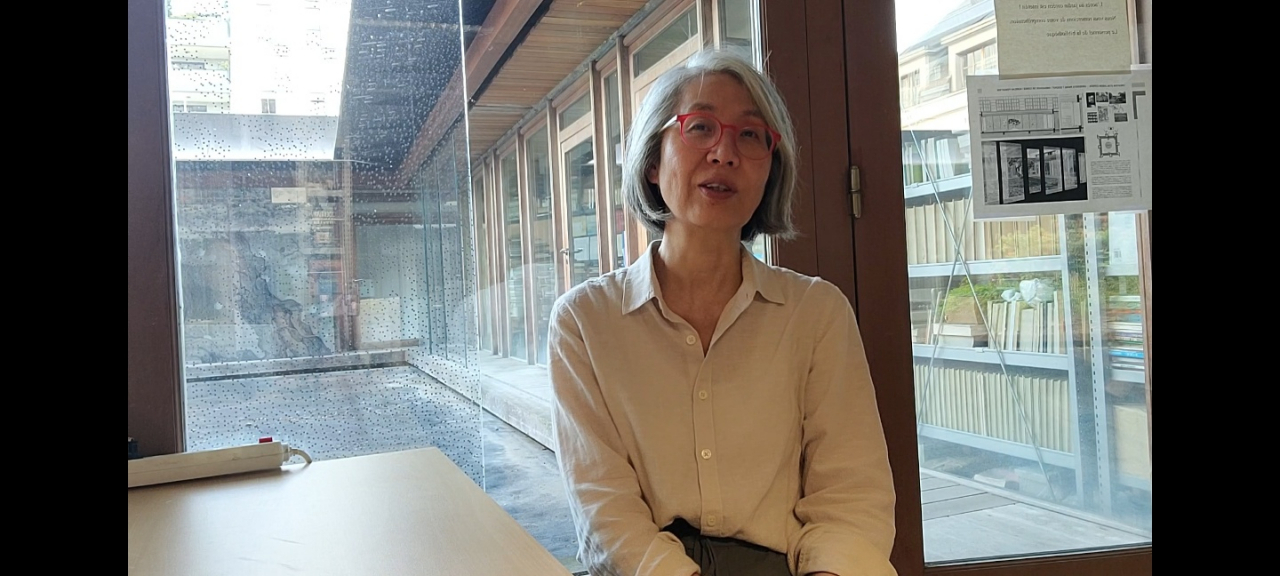
“The ratio is similar or worse for other schools that teach Korean studies here.”
There are also far fewer experts in certain areas of Korean studies compared to other East Asian studies, such as the economy, literature and arts. At the moment, there is no Korean economy professor in France, while the Chinese and Japanese economy are each being taught in respective courses, according to Roux. Just three professors across all of France teach Korean literature, while only one teaches on Korean arts.
“This problem often leads to students choosing Chinese or Japanese studies over Korean because of the lack of courses or classes,” he said.
Roux is currently working on publishing a textbook on Hanja -- Chinese characters used in the writing of Korean -- with fellow experts, due to the lack of available resources in the French market.
“It’s difficult to find good books or textbooks on Korean studies in French. There are books focused on old Chinese characters, but it’s different -- it’s for those studying Chinese studies,” he said.
Establishing a smooth road that could help students in France realize their possible interest in South Korea is a key task for those interested in the development of Korean studies, Kim noted. Chinese and Japanese language classes are already established as regular courses at most French middle and high schools. Korean language should be added as well.
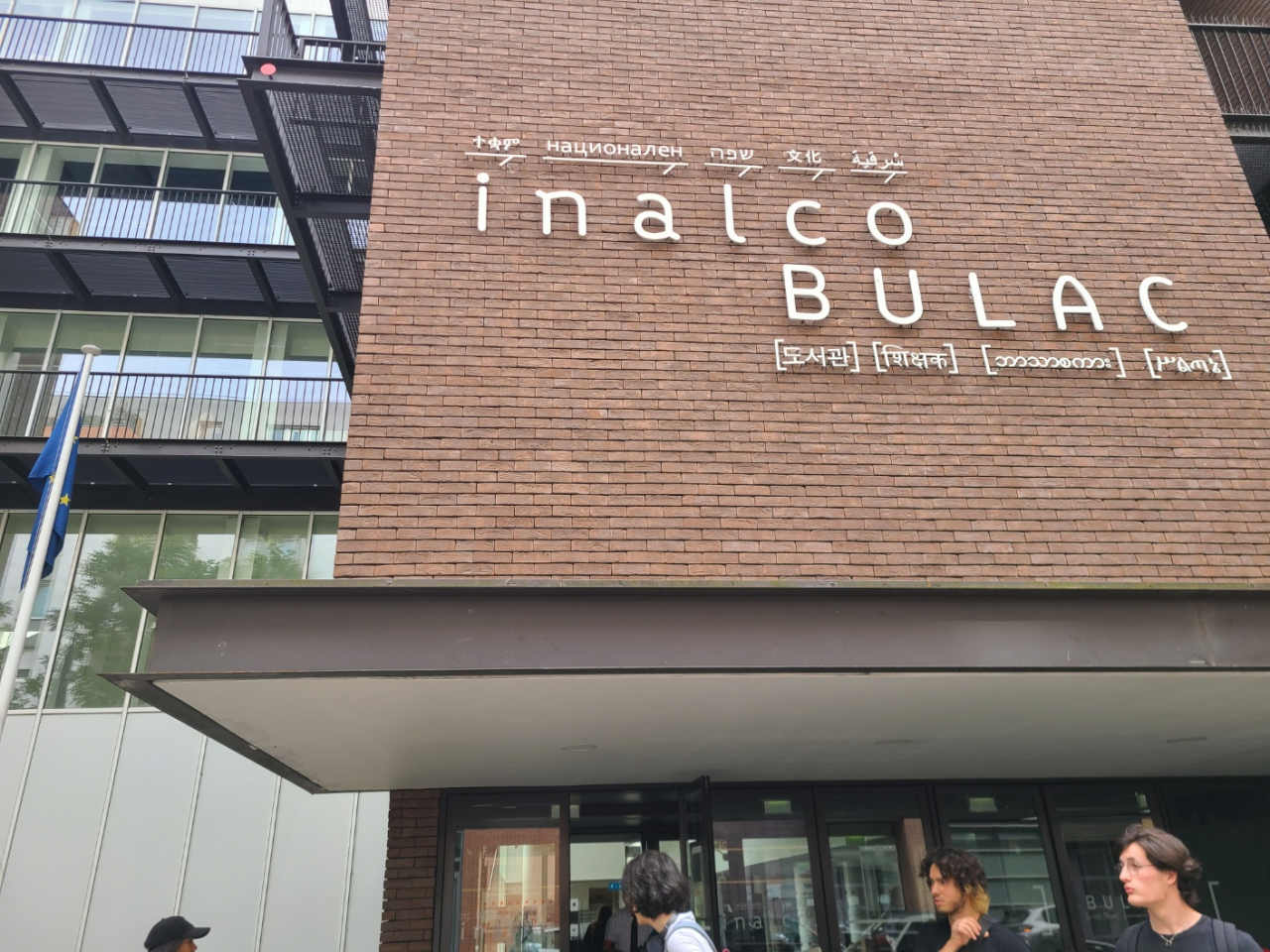
“It’ll be a smooth transition into Korean studies if the students learned and realized their interest in the Korean language from an early age,” Kim said.
“But at the moment, there are no teacher’s employment exams in France for the Korean language, unlike Chinese and Japanese. It would be great if there were diplomatic efforts that could help launch the exams.”
What students say
Korean studies majors at both Paris Cite University and Inalco were more than passionate about incorporating Korean culture into their lives to get a better understanding of their academics.
Inalco’s Korean Studies’ Student Association, dubbed “Bulkkot,” meaning “flame” in Korean, was founded two years ago. It was established by students who shared a passion for learning about Korean culture and promoting it within their school and beyond.
“We recently held a really successful Korean day last year with a buffet event,” said Kayya, a freshman at Inalco and president of Bulkkot.
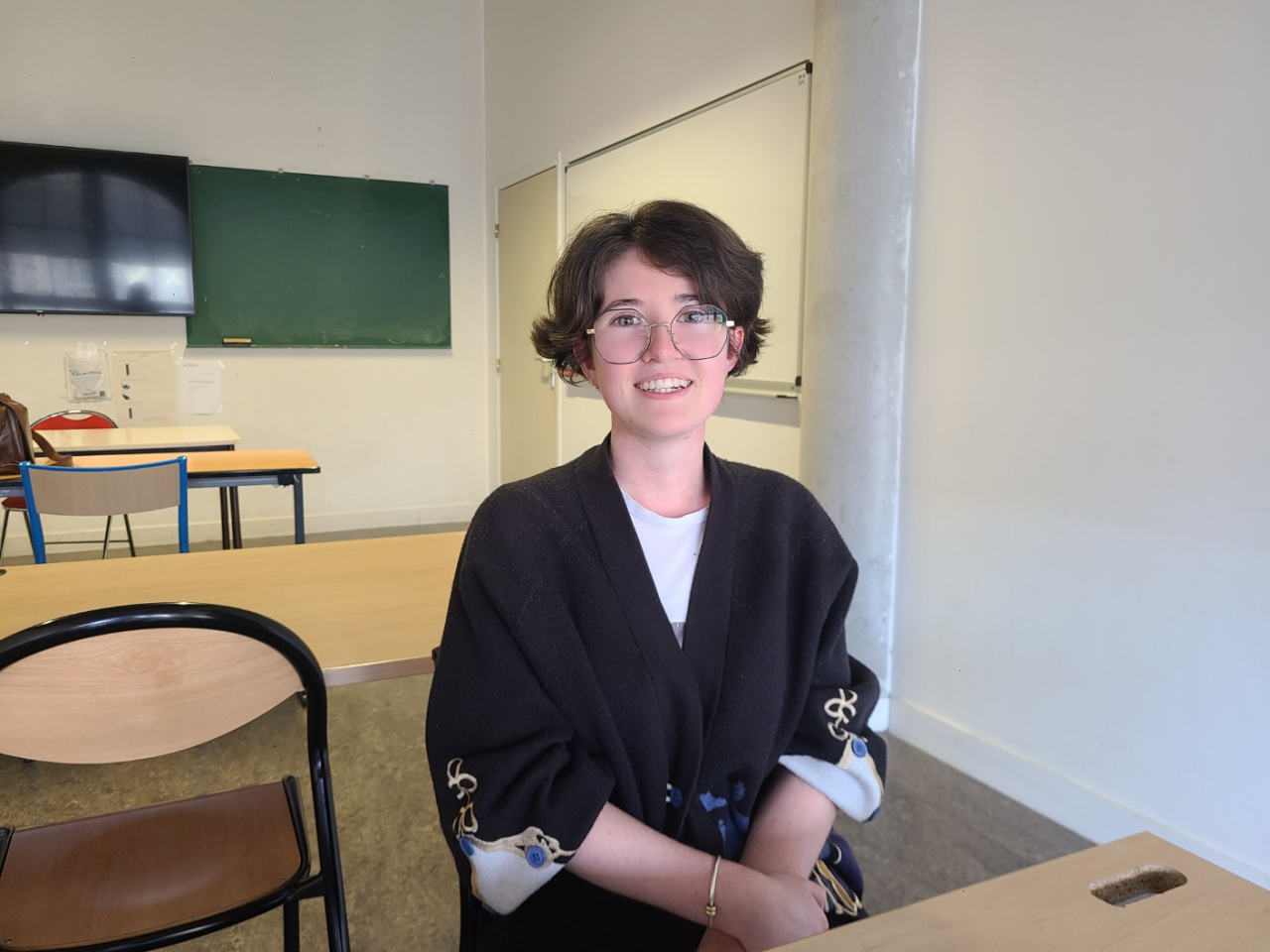
“People could wear hanbok (the traditional Korean costume) for that day and there were a lot of activities (going on),” she added.
The Korean studies courses at Inalco are academically challenging, but intriguing, she said. “Some people who were just here because they were (motivated by their interest in K-pop) normally drop out because Inalco’s courses are hard and demanding."
Mathilde, a Korean studies student at Paris Cite University, said that she hopes for more opportunities for practical application.
“The classes are wonderful, but I wish there were more opportunities to practice my Korean speaking skills,” she said in Korean.
“Next semester, I’m planning to get an internship related to translating and interpreting Korean into French and vice versa.”
“Korean Studies Beyond Korea” explores the current landscape of Korean studies through interviews, in-depth analyses and on-the-ground stories told from diverse world areas. Funded by the Korea Press Foundation, this series delves into the challenges and opportunities facing the field as Korea's rise as a cultural powerhouse has drawn interest from scholars, researchers and leaders from around the globe. – Ed.





